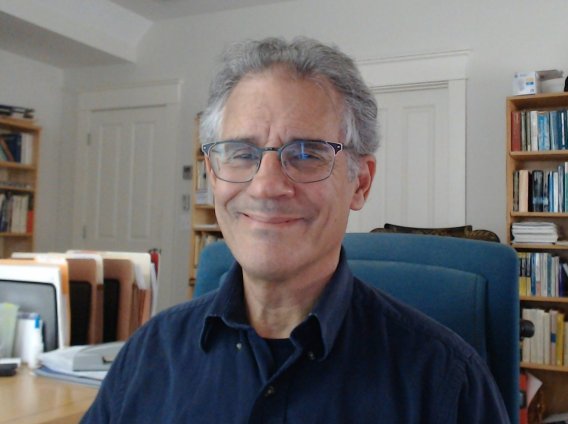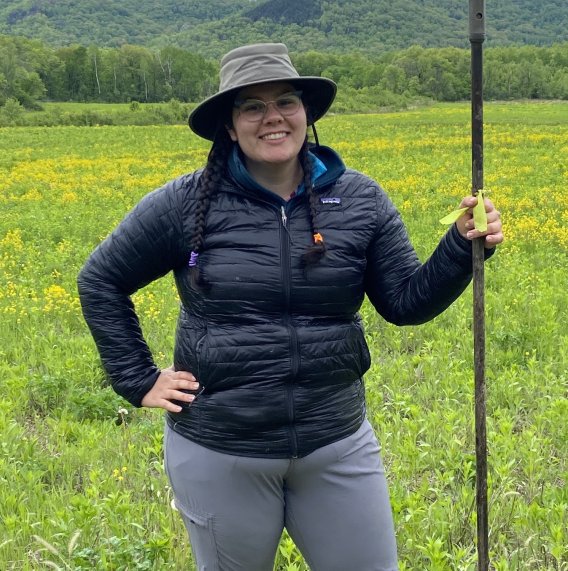Alvin Anderson Award Ceremony with Distinguished Lecture by Dr. Kenneth Belitz
Join us on Tuesday, April 11th at 3pm for a celebration of the 2023 Alvin Anderson Award recipient Shanti Penprase, with a distinguished lecture by Dr. Kenneth Belitz.
Kenneth Belitz, Research Hydrologist in the Water Resources Mission Area of the United States Geological Survey (USGS)
Distinguished lecture: Old problems, new approach: Applications of Ensemble-Tree Machine Learning to Hydrogeology
Abstract: Ensemble tree modeling is a machine learning method well suited for representing complex non-linear phenomena. As such, ensemble tree modeling can be applied to a wide range of questions in hydrogeology, including questions related to hydrogeologic mapping. Some questions are problems of regression in which one seeks an estimate of a continuous variable. For example, what is the depth to the water table across a region of interest? Other questions are problems of classification. For example, across a region of interest and over a range of depths, is groundwater oxic or reduced?
The U.S. Geological Survey National Water Quality Assessment project (NAWQA) has used ensemble tree methods to address questions related to groundwater quality at regional and national scales. Some of our models evaluate the three-dimensional distribution of factors that can affect groundwater quality, such as pH, redox, and groundwater age. In turn, the modeled factors were used in subsequent models to map the three-dimensional distribution of contaminant concentrations. In our experience, ensemble tree models are a powerful tool for answering difficult questions. They can be used as a complement to process-based modeling and to make predictions at scales that preclude the use of process-based approaches.

About: Dr. Kenneth Belitz is a Research Hydrologist in the Water Resources Mission Area of the United States Geological Survey (USGS). He received his B.A. in Geology from Binghamton University, and Ph.D. in hydrogeology from Stanford University in 1985. His dissertation examined the evolution of large-scale groundwater flow in the Denver Basin under the direction of Dr. John Bredehoeft. Throughout his career, Ken has simultaneously pursued two fronts: improving the fundamental hydrogeologic framework of the conterminous U.S., and employing numerical models – and, most recently, machine learning – in novel ways to better understand regional-scale groundwater quality and to project our current understanding into unsampled space.
Upon completing his Ph.D., Ken joined the USGS California Water Science Center, where he constructed a model of the western San Joaquin Valley; this model and its underlying framework became the gold standard and basis for subsequent models of this critically important aquifer system. From 1990-1997 Ken taught at Dartmouth University and Queens College of New York, before returning to the USGS in 1998 to lead an interdisciplinary team studying the water quality of the intensely urbanized Santa Ana River Basin as part of the USGS National Water Quality Assessment (NAWQA) Program. In this capacity, Ken began to develop a systematic approach to large-scale groundwater-quality assessment founded on a deep understanding of groundwater flow. From 2003-2012, Ken up-scaled this approach to obtain representative, unbiased water-quality data for the groundwater resources of the entire state of California. This work yielded new insights into the processes behind the spatial distribution of critical contaminants including perchlorate, pharmaceuticals, and hexavalent chrome. Ken then led the design and implementation of the groundwater component for the USGS NAWQA Program’s third decade. The design characterizes water quality in the most productive principal aquifers, cumulatively representing 85 percent of the Nation’s GW-derived drinking-water supplies. Ken’s work has given us an unbiased and surprising perspective on the relative risks of geogenic and anthropogenic contaminants, while evaluating constituents not previously sampled for at the national scale. Ken is a GSA Fellow and has received numerous USGS awards for his publications and service.
2023 Alvin Anderson Award recipient Shanti Penprase, advised by Prof. Andy Wickert
Presentation title: Impacts of glacially-driven base level change on river channel long profile across timescales: Whitewater River, southeastern Minnesota
Abstract: Changes in water and sediment supply from the Laurentide Ice Sheet resulted in alternating episodes of aggradation and incision for the upper Mississippi River and its tributaries. In this presentation, I present work on the impacts of changing Mississippi River bed elevation on the Whitewater River, a tributary of the Mississippi whose catchment remained unglaciated during the Last Glacial Maximum. By connecting the formation of terraces in tributaries with the evolution of the mainstem Mississippi, we build on our understanding of the regional geomorphic response to base-level fluctuation. We use a combination of topographic analysis and geochronologic methods to reconstruct changes in the channel long profile of the Whitewater River during this time. This work better constrains the timing and extent of fluvial-network response to changes in the Laurentide Ice Sheet, particularly within river systems that were not directly connected to the ice front. Further, this field-based data set on river response to base-level change and terrace genesis captures real-world complexity in a natural system and can catalyze greater understanding of river long-profile response to abrupt base-level fall.

About: Shanti Penprase is a PhD candidate in the Department of Earth & Environmental Sciences working with Professor Andy Wickert. Her research combines field methods, geochronology, and computational approaches to explore how river systems in Minnesota evolved from the most recent glacial–post-glacial transition to the start of Euro-American agriculture. Prior to UMN, she earned her BA in Geology from Carleton College and worked in water quality and community outreach in the Twin Cities for several years. In addition to research, Shanti is passionate about teaching, mentorship, and working collaboratively to build community knowledge and engagement.
